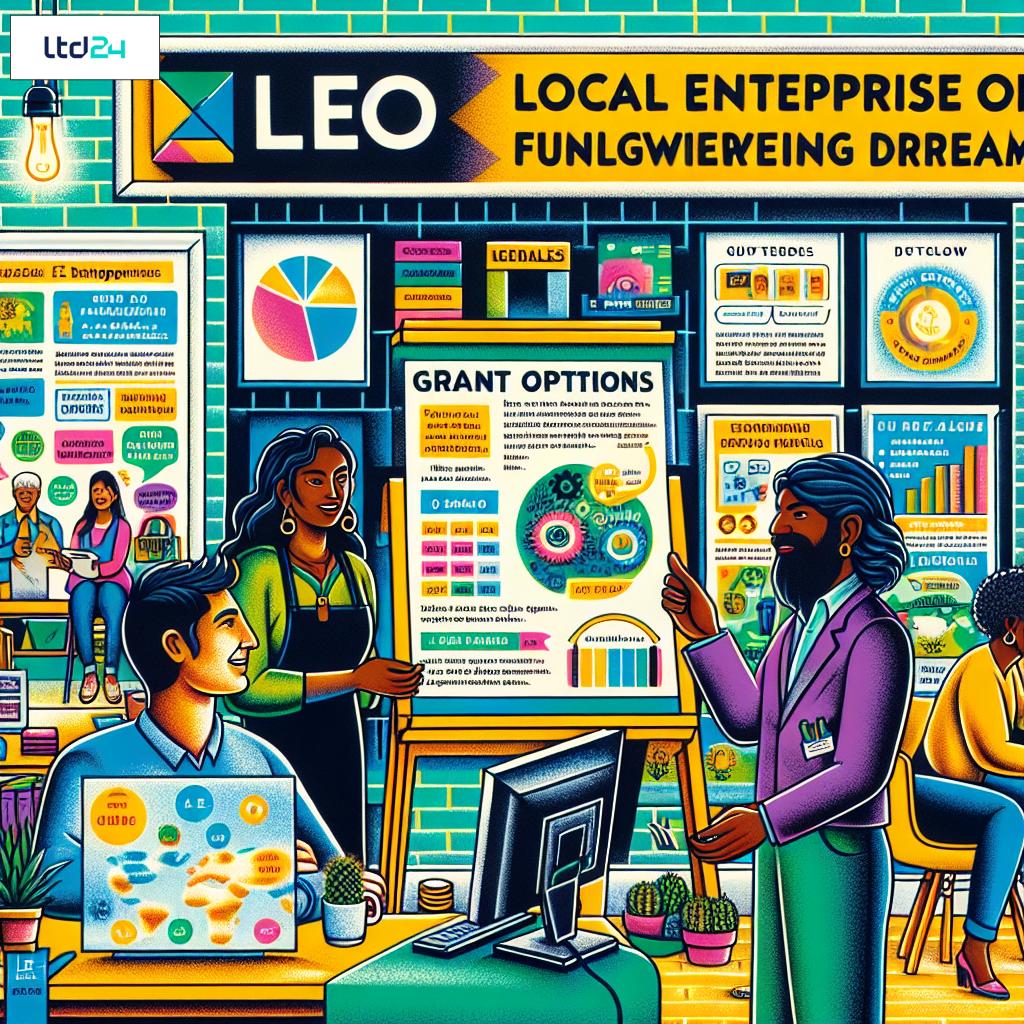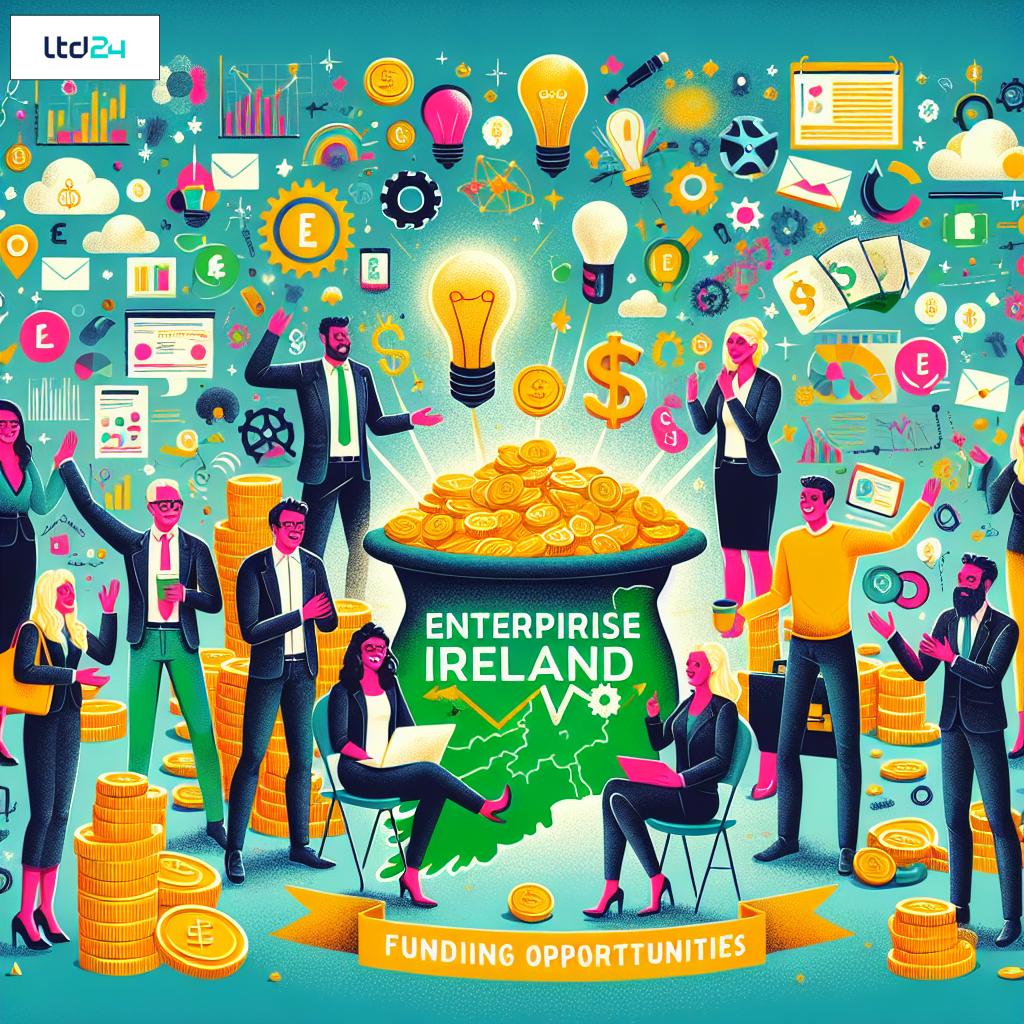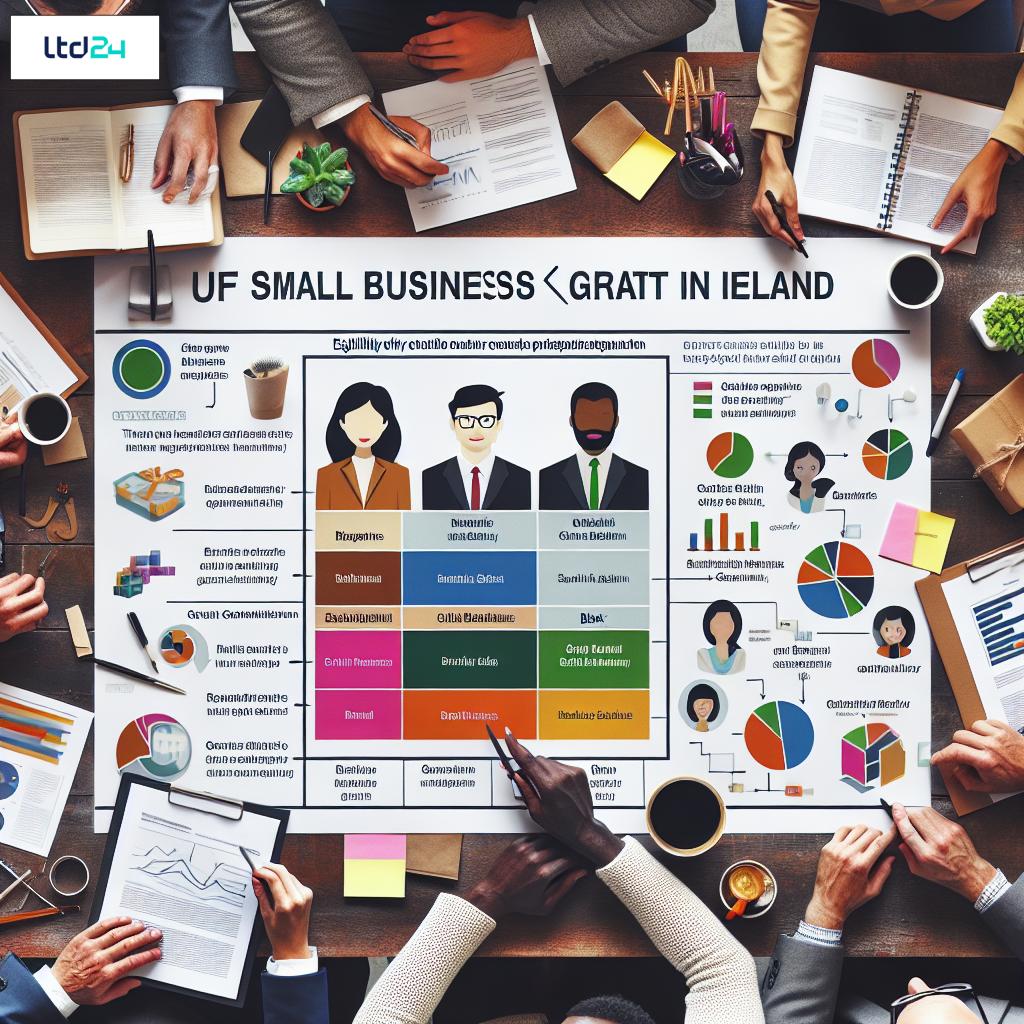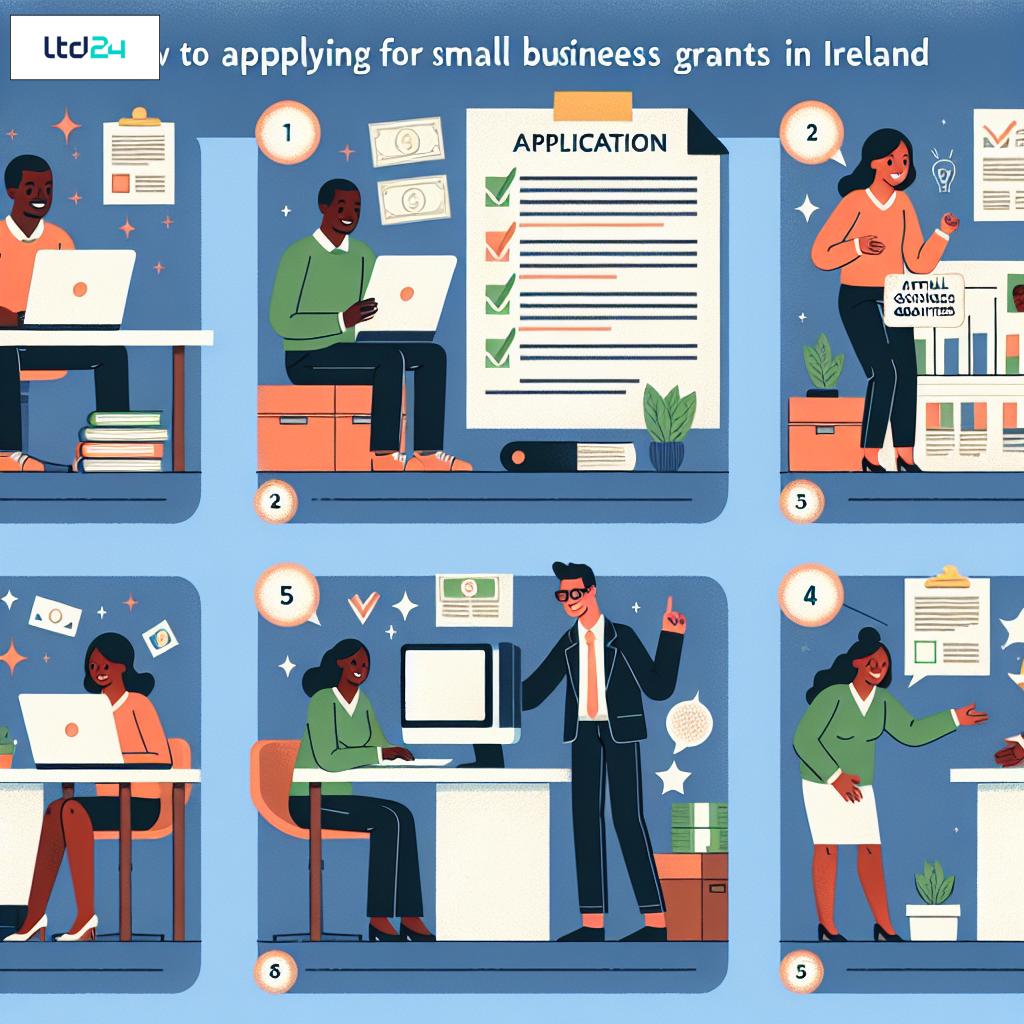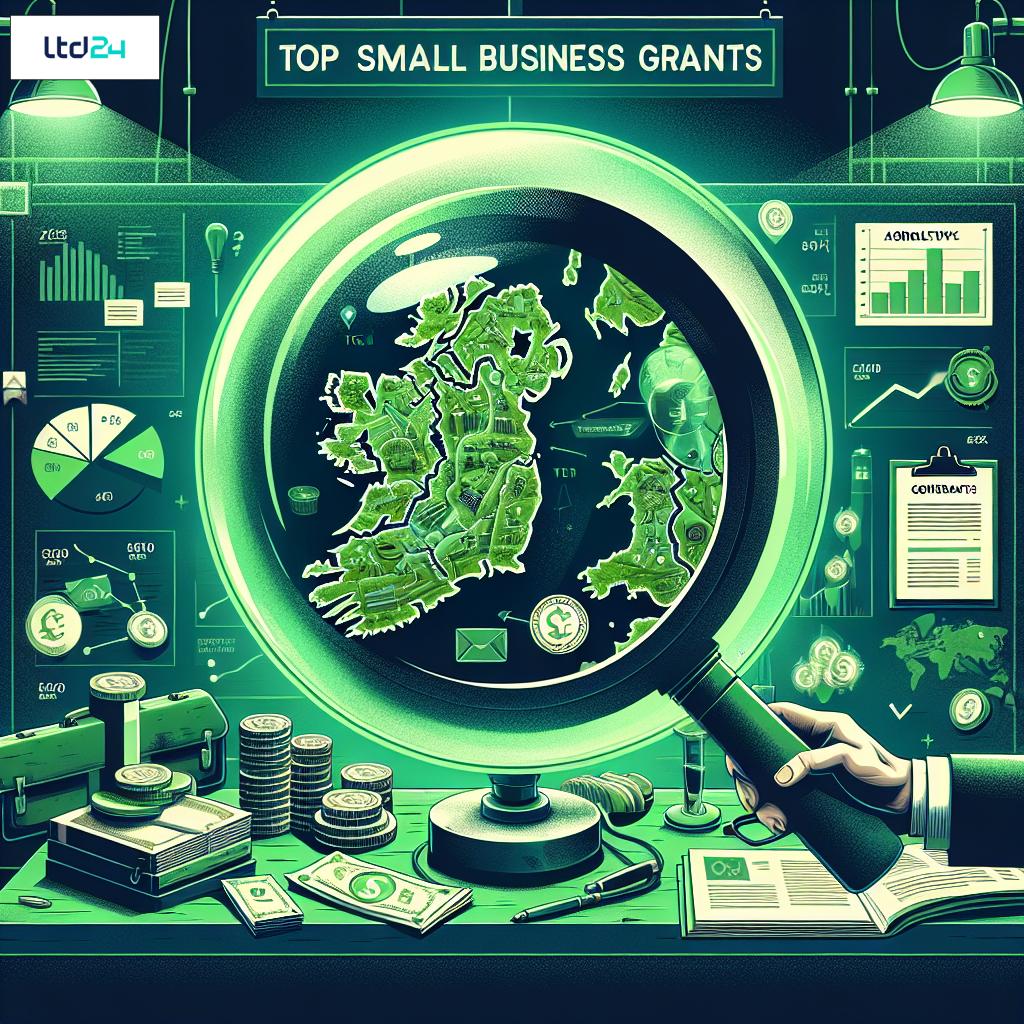Introduction: The Critical Role of Feasibility Studies in Business Development
In today’s competitive business environment, entrepreneurs and established companies alike face significant hurdles when evaluating new business concepts. A feasibility study represents a methodical assessment process designed to determine whether a business idea can be successfully executed from technical, financial, operational, and legal perspectives. However, conducting thorough feasibility studies requires substantial resources that many entrepreneurs lack at the initial stages. This is where feasibility study grants become invaluable tools for business development. These specialized funding mechanisms, provided by governmental bodies, private foundations, and industry associations, are specifically designed to finance the preliminary assessment of innovative business concepts before full-scale investment. By understanding and accessing these grants, entrepreneurs can significantly reduce their financial burden while maximizing their chances of developing viable business ventures aligned with market demands and regulatory requirements.
Understanding Feasibility Study Grants: Definition and Scope
Feasibility study grants constitute specialized financial allocations intended to support the systematic evaluation of proposed business ventures before substantial capital investment occurs. Unlike conventional business loans or equity investments, these grants specifically target the pre-implementation assessment phase, focusing on determining the viability of a business concept through rigorous analysis. The scope of these grants encompasses multiple evaluation dimensions, including market analysis, technical feasibility, financial projections, legal compliance, and operational requirements. Typically, feasibility study grants range from $5,000 to $50,000, depending on the complexity of the proposed business concept and the specific requirements of the funding organization. These non-repayable funds enable entrepreneurs to engage professional consultants, conduct market research, develop prototypes, analyze regulatory requirements, and prepare comprehensive business plans without depleting their initial capital reserves. By providing specialized funding for these critical preliminary evaluations, feasibility study grants serve as catalysts for informed business decisions while mitigating financial risks associated with new venture development.
The Strategic Value of Feasibility Study Grants for Entrepreneurs
Feasibility study grants deliver substantial strategic advantages that extend far beyond mere financial assistance. For entrepreneurs with promising concepts but limited resources, these grants offer a crucial opportunity to validate business ideas before committing significant personal capital. This validation process not only reduces financial risk but also provides entrepreneurs with comprehensive market intelligence and technical insights that inform strategic decision-making. Furthermore, feasibility studies funded through grants produce credible documentation that significantly enhances an entrepreneur’s ability to attract subsequent investment capital. Investors and financial institutions consistently demonstrate greater confidence in ventures that have undergone professional feasibility assessments, viewing them as lower-risk investment opportunities. Additionally, grant-funded feasibility studies frequently reveal potential challenges and limitations early in the development process, allowing entrepreneurs to implement strategic adjustments before substantial resources are committed. This preventive approach to business development has proven particularly valuable for innovative startups entering complex regulatory environments, where compliance requirements can significantly impact operational feasibility and financial projections.
Key Sources of Feasibility Study Grants for New Business Ideas
Prospective entrepreneurs should explore multiple funding channels when seeking feasibility study grants. Government agencies represent primary funding sources, with economic development departments, innovation ministries, and small business administrations offering specialized grant programs for business feasibility assessments. The European Commission’s Horizon Europe program, for instance, allocates substantial funding for feasibility studies in technology and innovation sectors. Similarly, private foundations with entrepreneurship-focused missions provide targeted grants for preliminary business assessments, particularly for ventures addressing social challenges or employing innovative technologies. Industry-specific trade associations frequently administer feasibility grant programs to stimulate sectoral growth and innovation, while academic institutions often partner with commercial entities to fund feasibility studies that commercialize research outcomes. Entrepreneurs should also investigate regional development authorities that administer feasibility study grants to stimulate local economic growth and create employment opportunities. For international ventures, organizations like the World Bank and United Nations Development Programme offer specialized feasibility funding programs targeting emerging economies. Entrepreneurs establishing ventures with cross-border operations should consider consulting with international tax specialists to evaluate jurisdictional advantages during the feasibility assessment process.
Eligibility Criteria: Qualifying for Feasibility Study Grants
Securing feasibility study grants requires meeting specific eligibility parameters that vary by funding source but typically share common requirements. Most funding bodies prioritize innovation potential, favoring concepts that demonstrate originality, technological advancement, or novel applications of existing solutions. Applicants must typically establish a clear market opportunity through preliminary research indicating substantial demand for their proposed product or service. Grant providers often impose geographic restrictions, limiting eligibility to businesses operating within specific regions, countries, or economic zones, making jurisdictional selection a critical consideration during the application process. Many programs establish sector-specific qualifications, allocating funds exclusively for industries aligned with strategic economic development goals such as renewable energy, advanced manufacturing, or digital technologies. Applicants frequently face business structure requirements, with certain grants restricted to legally established entities while others remain accessible to individual entrepreneurs. Additional eligibility factors may include prior business experience, educational qualifications, and demographic considerations designed to support underrepresented groups in entrepreneurship. For entrepreneurs establishing new legal entities specifically for grant eligibility purposes, consulting with company formation specialists can ensure optimal structural alignment with grant requirements while maintaining tax efficiency.
The Application Process: Preparing a Winning Grant Proposal
Constructing a compelling feasibility study grant application necessitates meticulous preparation and adherence to specific methodological principles. Begin by thoroughly analyzing the funding organization’s guidelines, focusing particular attention on evaluation criteria, submission requirements, and strategic priorities. Develop a concise yet comprehensive executive summary that articulates your business concept, its market potential, and the specific feasibility questions requiring investigation. The core application must present a detailed project plan delineating specific feasibility assessment methodologies, including market research approaches, technical evaluation parameters, and financial analysis frameworks. Provide realistic budget projections that clearly allocate funds to specific feasibility assessment activities while demonstrating cost efficiency. Strengthen your application by incorporating preliminary market data, conceptual prototypes, or relevant case studies that substantiate the underlying business concept. Emphasize the anticipated economic impact of your venture, including employment generation, innovation advancement, and potential export opportunities. For entrepreneurs establishing new ventures in the United Kingdom, incorporating references to alignment with UK business development priorities can significantly enhance grant application success rates. Consider engaging professional grant writers with specific experience in feasibility funding applications to maximize your approval probability.
Common Components of Feasibility Studies Funded by Grants
Grant-funded feasibility studies typically encompass several essential analytical components that collectively determine business viability. Market analysis forms the cornerstone, examining market size, growth trajectories, competitive landscapes, and customer segmentation to validate demand assumptions. Technical feasibility assessments evaluate production processes, technology requirements, and operational infrastructures necessary for product or service delivery. Financial viability analysis projects startup costs, operational expenses, revenue streams, and profit margins across multiple scenarios, establishing minimum viability thresholds. Legal and regulatory assessment identifies compliance requirements, potential legal obstacles, and intellectual property considerations that might impact implementation. Environmental impact evaluation has become increasingly mandatory, particularly for manufacturing or resource-intensive ventures, examining sustainability factors and ecological consequences. Organizational structure analysis determines human resource requirements, management capabilities, and operational workflows necessary for effective implementation. For businesses contemplating international operations, incorporating cross-border tax implications into feasibility studies has become essential for accurate financial projections and risk assessment. Comprehensive feasibility studies conclude with formal recommendations regarding business viability and implementation pathways, providing entrepreneurs with authoritative guidance for subsequent development decisions.
Industry-Specific Feasibility Study Grants: Finding Your Niche
Numerous grant programs target specific industries, offering tailored feasibility funding for entrepreneurs operating within priority sectors. Technology and innovation sectors benefit from substantial government and private foundation grants, particularly for concepts involving artificial intelligence, robotics, biotechnology, and digital transformation. The European Innovation Council, for instance, allocates specialized feasibility grants exceeding €50,000 for technology entrepreneurs. Renewable energy ventures attract dedicated feasibility funding from environmental agencies and sustainability-focused foundations, especially for concepts addressing energy efficiency, alternative fuels, and carbon reduction technologies. Healthcare innovation receives prioritized feasibility support through medical research foundations, healthcare systems, and pharmaceutical partners seeking to advance patient care methodologies and treatment technologies. Agricultural technology entrepreneurs can access specialized feasibility grants focusing on food security, sustainable farming practices, and agricultural productivity enhancements. Manufacturing innovation attracts feasibility funding targeted at production efficiency, advanced materials, and supply chain optimization. Entrepreneurs considering international company structures for their ventures should incorporate jurisdictional analysis into industry-specific feasibility studies to optimize operational efficiency and tax treatment across borders.
Case Study: Successful Implementation of Grant-Funded Feasibility Studies
Examining practical applications of feasibility study grants provides valuable insights into implementation methodologies and success factors. Consider the case of BioTech Innovations, a UK-based startup that secured a £35,000 feasibility grant from Innovate UK to assess the commercial viability of their novel enzyme production technology. Their comprehensive feasibility study encompassed laboratory testing, market analysis across three continents, regulatory pathway assessment, and financial modeling. The study revealed significant market opportunities in pharmaceutical manufacturing but identified regulatory hurdles in certain jurisdictions that required modification of their original business model. Based on these findings, the company established a UK limited company with appropriate governance structures while forming strategic partnerships to navigate regulatory complexities in target markets. The feasibility study’s detailed financial projections and market validation enabled BioTech Innovations to subsequently secure £2.5 million in venture capital funding, representing a 7000% return on the initial grant investment. This case exemplifies how methodically executed feasibility studies can transform promising concepts into investment-ready business propositions through systematic risk identification and strategic adjustment, while providing the documentary evidence investors require for confidence in new ventures.
Maximizing Grant Utilization: Best Practices for Feasibility Studies
To extract maximum value from feasibility study grants, entrepreneurs should implement specific methodological approaches throughout the assessment process. Prioritize comprehensive scope definition at the outset, clearly articulating the specific questions the feasibility study must answer regarding market viability, technical requirements, financial projections, and operational considerations. Develop detailed assessment methodologies for each feasibility component, ensuring analytical rigor and defensible conclusions. Engage qualified specialists for technical evaluations, market analyses, and financial projections to enhance credibility and analytical depth. Implement regular progress reviews against predefined milestones, adjusting methodologies as necessary based on emerging findings. Maintain meticulous documentation of all research activities, methodologies, and analytical processes to satisfy grant compliance requirements and create valuable reference material for subsequent development stages. Integrate sensitivity analysis into financial projections, examining how variability in key assumptions impacts overall viability conclusions. For ventures with international dimensions, incorporating jurisdictional comparative analysis into feasibility studies can identify optimal operational structures and tax treatment. Feasibility studies should conclude with actionable recommendations that provide clear guidance for subsequent development decisions, potential pivots, or project abandonment if viability thresholds cannot be met.
Combining Multiple Funding Sources: Leveraging Grants for Comprehensive Studies
Sophisticated entrepreneurs frequently combine multiple funding mechanisms to finance comprehensive feasibility assessments. A strategic approach involves utilizing complementary grant programs that target different aspects of feasibility evaluation. For instance, an entrepreneur might secure a technical feasibility grant from an innovation agency while simultaneously obtaining market research funding from an industry association. This complementary approach enables more comprehensive assessment without exceeding individual grant limitations. Additionally, entrepreneurs should consider matched funding arrangements where feasibility grants require proportional financial contributions from the applicant, often satisfied through other grant sources rather than personal capital. Staged funding strategies leverage initial feasibility grants to establish preliminary viability, creating the evidential foundation for accessing larger subsequent grants for more detailed assessment components. For international ventures, entrepreneurs might simultaneously pursue feasibility grants in multiple jurisdictions, particularly when establishing multinational corporate structures that operate across borders. This multi-jurisdictional approach not only increases total available funding but also facilitates more comprehensive feasibility assessment across different market environments. Entrepreneurs should maintain careful accounting segregation between different grant sources to ensure compliance with respective funding conditions and reporting requirements.
Post-Feasibility Funding: Transitioning from Assessment to Implementation
Successfully completed feasibility studies create strategic pathways to implementation funding through various mechanisms. Equity investment becomes significantly more accessible following positive feasibility conclusions, with angel investors, venture capital firms, and private equity groups demonstrating greater confidence in professionally validated concepts. Professional feasibility studies provide the documented market validation and risk assessment investors require for due diligence processes. Debt financing options expand considerably post-feasibility, with commercial banks and specialized lenders more receptive to loan applications supported by comprehensive feasibility documentation. For entrepreneurs establishing new ventures in the UK, feasibility studies that demonstrate alignment with government priorities can unlock specialized implementation funding through British Business Bank programs and regional development funds. Strategic partnerships represent another valuable post-feasibility funding channel, with established industry participants often willing to provide implementation capital, operational resources, or market access in exchange for equity participation or commercial rights. Entrepreneurs should develop comprehensive implementation funding strategies during the latter stages of feasibility assessment, incorporating specific transition plans that leverage feasibility conclusions to attract appropriate implementation capital aligned with their venture’s specific requirements and growth trajectory.
Feasibility Grant Reporting Requirements: Ensuring Compliance
Grant recipients must meticulously fulfill reporting obligations to maintain compliance and preserve eligibility for subsequent funding opportunities. Most feasibility grant programs impose structured reporting formats with specific content requirements, submission deadlines, and supporting documentation. Typical reporting elements include detailed expenditure accounting, methodology implementation summaries, research findings, and conclusions regarding business viability. Many funding bodies require interim progress reports at predefined intervals throughout the feasibility study period, allowing for monitoring of methodology implementation and preliminary findings. Financial accountability documentation represents a critical compliance component, requiring recipients to maintain comprehensive records of all grant-funded expenditures with supporting invoices, receipts, and payment confirmations. Some programs mandate independent verification of key feasibility conclusions, particularly for technical or scientific components, requiring third-party validation of critical findings. For entrepreneurs establishing new corporate entities specifically for feasibility studies, implementing proper accounting systems and governance structures from inception ensures compliance capability while creating foundations for subsequent business operations. Grant recipients should maintain regular communication with funding administrators throughout the feasibility process, proactively addressing any implementation challenges or methodology adjustments to ensure ongoing compliance with program requirements.
Legal and Intellectual Property Considerations in Funded Feasibility Studies
Feasibility study grants introduce specific legal and intellectual property considerations that entrepreneurs must carefully navigate. Most grant agreements contain confidentiality provisions governing the disclosure of feasibility findings, with varying requirements regarding public dissemination and proprietary information protection. Entrepreneurs should thoroughly review these provisions to ensure alignment with their intellectual property strategy before accepting funding. Intellectual property ownership clauses require particular scrutiny, as some grant programs impose partial or conditional rights to innovations developed during funded feasibility studies. For ventures involving multiple partners, establishing clear intellectual property attribution agreements before commencing grant-funded research prevents subsequent ownership disputes. Many feasibility grants impose commercialization requirements mandating that viable concepts proceed to implementation within specified timeframes or geographic regions. For entrepreneurs establishing new ventures based on feasibility findings, consulting with company formation specialists ensures appropriate protection of intellectual assets developed during the feasibility process. Additionally, entrepreneurs should implement comprehensive data protection protocols throughout the feasibility assessment process, particularly when research involves personal information or commercially sensitive data subject to regulatory protection. Proactive legal guidance during the grant application stage can identify potential intellectual property complications before contractual commitments are established.
International Feasibility Grant Programs for Global Business Concepts
Entrepreneurs developing business concepts with international dimensions should explore multinational grant programs specifically designed for cross-border feasibility assessment. The European Union’s Horizon Europe program allocates substantial funding for feasibility studies of business concepts with pan-European market potential, offering grants exceeding €50,000 for preliminary assessments. World Bank Group initiatives provide specialized feasibility funding for ventures targeting emerging economies, particularly those addressing infrastructure, healthcare, and educational challenges in developing nations. The United Nations Development Programme administers feasibility grants for business concepts aligned with sustainable development goals, offering both financial support and technical assistance throughout the assessment process. Bilateral economic cooperation agreements between specific countries often include feasibility funding provisions for joint ventures or businesses facilitating trade between partner nations. For entrepreneurs considering multi-jurisdictional corporate structures, international feasibility grants provide valuable opportunities to assess regulatory environments, market conditions, and operational requirements across different territories. When applying for international feasibility grants, entrepreneurs should emphasize cross-border value creation, highlighting how their ventures facilitate knowledge transfer, economic development, or technological advancement across multiple jurisdictions.
Digital Resources and Tools for Feasibility Study Development
Entrepreneurs can leverage numerous digital platforms and analytical tools to enhance the efficiency and effectiveness of grant-funded feasibility studies. Market research databases such as Statista, IBISWorld, and Euromonitor provide comprehensive industry data, market size estimates, and competitive landscape analysis critical for market feasibility components. Financial modeling platforms like Fincite and Finmark offer specialized templates and analytical frameworks for projecting startup costs, operational expenses, and revenue streams across various scenarios. Technical assessment tools vary by industry but include specialized software for product design validation, process simulation, and capacity planning. Customer validation platforms such as SurveyMonkey, Typeform, and UserTesting facilitate efficient primary research for validating demand assumptions and refining value propositions. Project management systems like Asana, Trello, and Monday.com help maintain methodical progress through complex feasibility components while ensuring comprehensive documentation for grant reporting requirements. For entrepreneurs establishing new ventures in the UK, incorporating online company formation tools into the feasibility process enables rapid implementation of positive assessment conclusions while maintaining legal and tax compliance. When selecting digital tools, entrepreneurs should prioritize those offering comprehensive data export capabilities to facilitate seamless integration of findings into final feasibility reports and subsequent business planning documents.
Avoiding Common Pitfalls in Feasibility Grant Applications
Successful grant applications avoid several recurring errors that frequently result in rejection. Scope misalignment represents a primary rejection factor, occurring when applicants propose feasibility studies that don’t match the funding organization’s strategic priorities or program objectives. Methodological inadequacies constitute another common deficiency, with applications failing to articulate specific assessment approaches for critical feasibility components. Unrealistic budgeting undermines application credibility, particularly when financial allocations appear insufficient for the proposed assessment scope or excessively generous for standard evaluation activities. Insufficient market substantiation frequently triggers rejection, with applications failing to provide preliminary evidence validating the underlying business concept’s market potential. Technical ambiguity creates uncertainty regarding the applicant’s capability to execute the proposed assessment, particularly for technically complex concepts requiring specialized expertise. Weak implementation pathways raise concerns about the practical application of feasibility findings, with applications failing to articulate how assessment conclusions will inform subsequent development decisions. For entrepreneurs establishing new business entities specifically for grant applications, ensuring proper corporate governance and financial systems from inception demonstrates implementation capability and organizational maturity to grant administrators. Applications should undergo rigorous peer review before submission, preferably by individuals with experience in successful grant acquisition within the same funding program.
Alternative Funding for Feasibility Studies: Beyond Traditional Grants
When conventional grant funding proves inaccessible, entrepreneurs can explore alternative mechanisms for financing feasibility studies. Crowdfunding platforms increasingly support feasibility-focused campaigns, allowing entrepreneurs to raise assessment capital while simultaneously validating market interest through backer engagement. Angel investor networks sometimes provide feasibility funding as precursors to larger equity investments, particularly for concepts demonstrating substantial growth potential. Corporate innovation partnerships offer another viable pathway, with established companies providing resources and funding for feasibility assessment of concepts relevant to their strategic interests. Academic collaboration represents a cost-effective approach for technically complex assessments, with university partnerships providing access to specialized expertise and research facilities in exchange for intellectual property participation or data sharing. Incubator and accelerator programs frequently include feasibility assessment components, providing both funding and methodological guidance throughout the evaluation process. For entrepreneurs utilizing multiple funding sources, establishing appropriate corporate structures early in the development process facilitates proper financial segregation and reporting while creating foundations for subsequent business operations. When traditional grants remain unavailable, combining several alternative funding mechanisms often produces sufficient resources for comprehensive feasibility assessment while distributing financial commitment across multiple stakeholders.
The Future of Feasibility Study Grants: Emerging Trends
The feasibility funding landscape continues to evolve, presenting new opportunities for entrepreneurs seeking assessment capital. Targeted demographic initiatives represent an expanding funding category, with government agencies and foundations establishing specialized feasibility grants for underrepresented entrepreneurs including women, minorities, and rural business developers. Sustainability-focused programs have emerged as priority funding channels, offering enhanced support for business concepts demonstrating positive environmental impact or addressing climate change challenges. Digital transformation grants target feasibility studies for business models leveraging emerging technologies like artificial intelligence, blockchain, and advanced data analytics. Public-private partnerships are increasingly common in feasibility funding, with government agencies collaborating with private sector organizations to provide complementary resources throughout the assessment process. Simplified application processes represent another positive trend, with many funding bodies implementing streamlined procedures and accelerated approval timelines for feasibility-focused grants. For entrepreneurs establishing ventures in emerging sectors, consulting with specialized formation agents ensures optimal alignment between corporate structure and evolving grant opportunities. Forward-thinking entrepreneurs should maintain awareness of these developing funding trends, positioning their feasibility grant applications to capitalize on priority areas receiving enhanced financial support.
Measuring Feasibility Study Success: Key Performance Indicators
Effective feasibility studies establish specific performance metrics that objectively determine business viability. Market validation thresholds define minimum market size, growth rates, and competitive positioning required for viable implementation. Technical feasibility indicators establish technical performance parameters, production capabilities, and quality metrics necessary for commercially viable operations. Financial viability metrics typically include minimum return on investment thresholds, maximum acceptable payback periods, and specific profitability requirements across multiple time horizons. Risk assessment parameters define acceptable levels of market, technical, and operational risk, identifying specific mitigation strategies for identified vulnerabilities. Resource requirement benchmarks establish minimum human, financial, and infrastructure resources necessary for successful implementation. Implementation timeline projections provide realistic scheduling for development stages from concept to commercial operation. For entrepreneurs establishing ventures with international dimensions, incorporating cross-border compliance requirements into feasibility metrics ensures comprehensive viability assessment. Professionally developed feasibility studies conclude with clear viability determinations based on objective measurement against these predefined performance indicators, providing entrepreneurs with authoritative guidance regarding implementation decisions while creating valuable documentation for subsequent funding applications.
Expert Guidance: Working with International Tax and Business Consultants
Complex feasibility studies, particularly those involving international operations or specialized industries, benefit significantly from professional advisory input. International tax consultants provide critical guidance regarding jurisdictional selection, corporate structure optimization, and cross-border transaction efficiency—considerations that materially impact financial feasibility conclusions. Regulatory specialists offer essential insights into compliance requirements, licensing processes, and legal restrictions that define operational parameters in regulated industries. Market research professionals contribute methodological rigor to demand assessment, competitive analysis, and customer segmentation—critical components of market feasibility determination. Financial modeling experts develop comprehensive projections incorporating multiple variables and scenarios, providing nuanced analysis of profitability drivers and risk factors. Technical domain specialists evaluate production methodologies, technology requirements, and quality parameters specific to the proposed business concept. For entrepreneurs establishing ventures with international dimensions, engaging international tax advisors early in the feasibility process ensures appropriate consideration of jurisdictional advantages, treaty benefits, and compliance requirements. While professional advisory services represent additional costs, their specialized input significantly enhances feasibility study credibility while identifying optimization opportunities that often generate substantial long-term financial benefits exceeding the initial consulting investment.
Conclusion: Leveraging Feasibility Grants for Business Success
Feasibility study grants represent powerful catalysts for transforming promising business concepts into viable commercial ventures through rigorous, methodical assessment. These specialized funding mechanisms enable entrepreneurs to conduct comprehensive evaluations of market potential, technical requirements, financial projections, and operational considerations without depleting initial capital resources. Successful grant acquisition requires thorough understanding of funding sources, careful alignment with program priorities, and methodical preparation of compelling applications that demonstrate both concept viability and assessment capability. Professionally executed feasibility studies deliver multiple strategic advantages beyond initial concept validation, providing entrepreneurs with authoritative documentation that significantly enhances subsequent funding applications, identifies optimization opportunities, and reveals potential challenges before substantial resources are committed. For entrepreneurs developing complex ventures with international dimensions, incorporating jurisdictional analysis and corporate structure optimization into feasibility assessments establishes foundations for tax-efficient operations across borders. By utilizing the strategies, resources, and methodological approaches outlined in this comprehensive guide, entrepreneurs can secure appropriate feasibility funding, conduct rigorous assessments, and develop compelling evidence-based implementation plans that maximize their ventures’ probability of commercial success.
Navigating Your Feasibility Study Journey: Professional Assistance
If you’re considering applying for a feasibility study grant to evaluate your business concept, professional guidance can significantly enhance your success probability. Expert advisors bring specialized knowledge of funding sources, application strategies, and assessment methodologies that maximize both grant acquisition and study effectiveness. Our team at LTD24 specializes in supporting entrepreneurs throughout the feasibility process, from identifying appropriate grant opportunities to structuring optimal corporate entities for implementation. We provide comprehensive guidance on jurisdictional selection, tax efficiency, regulatory compliance, and corporate governance—critical considerations for ventures with international dimensions. With extensive experience in successful grant applications and feasibility study execution across multiple industries, our advisors help entrepreneurs navigate complex assessment processes while building foundations for long-term business success.
If you’re seeking expert guidance to navigate international tax complexities and feasibility funding opportunities, we invite you to book a personalized consultation with our team.
We are a boutique international tax consultancy with advanced expertise in corporate law, tax risk management, asset protection, and international audits. We offer tailored solutions for entrepreneurs, professionals, and corporate groups operating on a global scale.
Schedule a session with one of our experts now for $199 USD/hour and get concrete answers to your tax and corporate questions (link: https://ltd24.co.uk/consulting).




